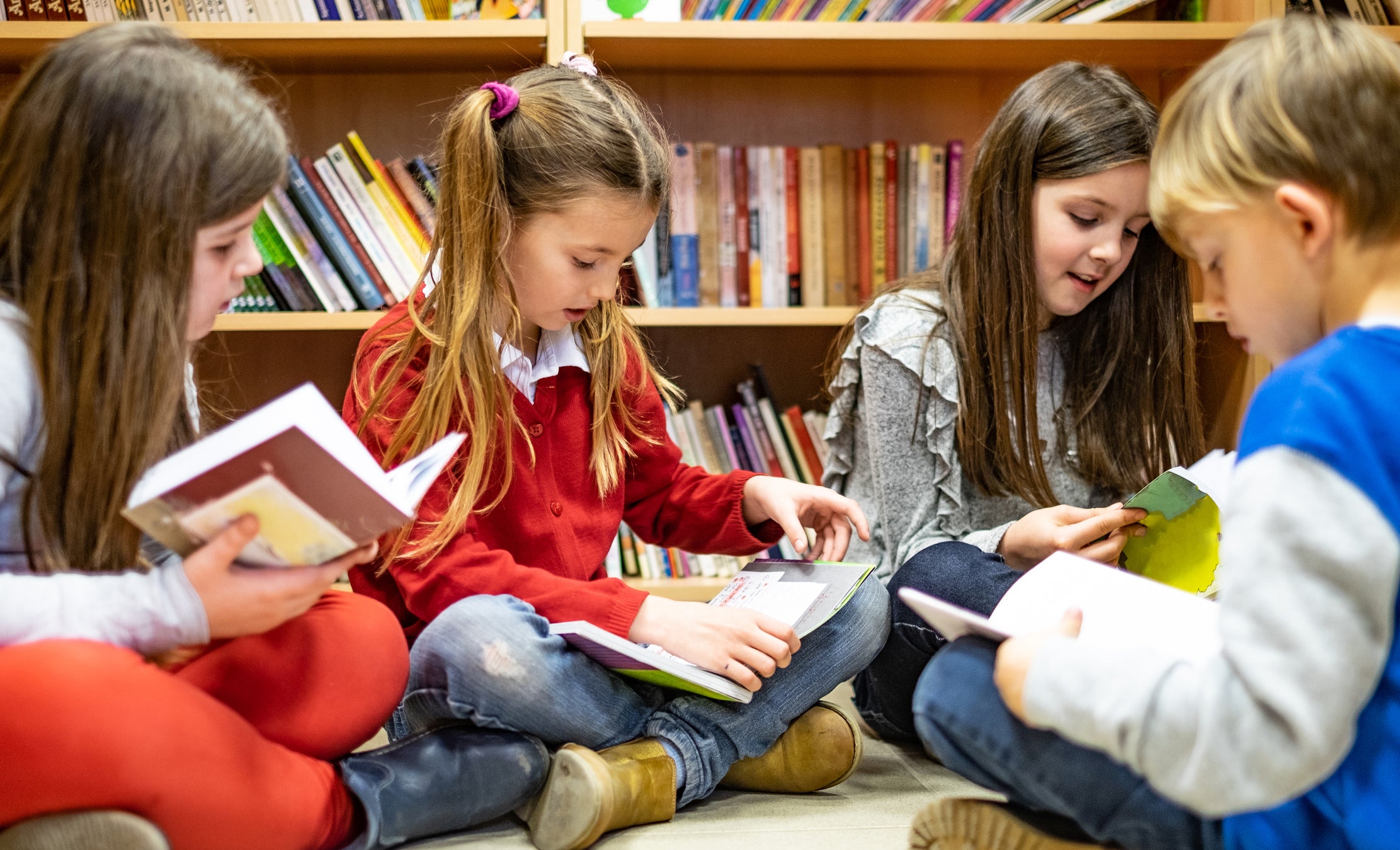One in four children aged 11 in England struggled with learning to read before pandemic
By the end of Key Stage Two, 173,765 primary school pupils had not met the expected standard in reading

Your support helps us to tell the story
From reproductive rights to climate change to Big Tech, The Independent is on the ground when the story is developing. Whether it's investigating the financials of Elon Musk's pro-Trump PAC or producing our latest documentary, 'The A Word', which shines a light on the American women fighting for reproductive rights, we know how important it is to parse out the facts from the messaging.
At such a critical moment in US history, we need reporters on the ground. Your donation allows us to keep sending journalists to speak to both sides of the story.
The Independent is trusted by Americans across the entire political spectrum. And unlike many other quality news outlets, we choose not to lock Americans out of our reporting and analysis with paywalls. We believe quality journalism should be available to everyone, paid for by those who can afford it.
Your support makes all the difference.A quarter of 11-year-olds in England were having difficulties learning to read before the pandemic, new figures have revealed.
The latest available data from the Department of Education shows 27 per cent of children – 173,765 pupils – had not met the expected reading standard by the end of Key Stage 2 in 2019. This was two per cent – or 19,596 pupils – higher than the previous year.
In response to a written parliamentary question submitted in February by Munira Wilson, the Liberal Democrats’ spokesperson for Education, schools minister Robin Walker provided figures that showed 40 per cent of pupils were below standard in the constituencies of Leeds Central, Peterborough and Dudley North.
The figures revealed that the local authorities of Peterborough and Bedford had the highest percentage of students struggling to learn to read, with 36 and 34 per cent respectively. Rotherham and Dudley were also greatly affected with figures of 34 and 33 per cent respectively.
Mr Walker also said that data was not recorded for the academic years 2019/20 or 2020/21 due to the impact of the Covid-19 outbreak - when schools were forced to shut and lessons moved online during national lockdowns.
The Liberal Democrats said the government data exposed the “reading crisis” in schools and was just the “tip of the iceberg” after children’s education was significantly impacted by the pandemic.
Ms Wilson said: “The pandemic has had a huge effect on our children, and with reading ages already below standards for many before the crisis, the case now could be terrible for thousands of children across the country.
“Parents, teachers and pupils have not had a fair deal throughout this pandemic. No child should leave primary school unable to read at the standard level for their age. They need a chance to catch up.”
The Liberal Democrats are calling for a review into reading standards in England and urging ministers to invest more resources into programmes that will increase reading levels.
Last week, MPs warned that disadvantaged pupils in poorer areas could be up to eight months behind with their education.
A report from the Commons Education Select Committee said pupils were facing an “epidemic of educational inequality” and a “worsening mental health crisis” as a result of school closures and lockdowns during the pandemic.
The government has already announced £5 billion of funding for catch-up programmes to make up for lost learning after the disruption caused by Covid.
A spokesman for the Department for Education said: “We are committed to raising literacy standards and our ambitious recovery plan is helping pupils make up for learning lost during the pandemic.
“Backed by £5 billion, we are rolling out high-quality tutoring – which has seen a million courses started by pupils so far – alongside world-class training for teachers and early practitioners, and additional funding for schools.”
Join our commenting forum
Join thought-provoking conversations, follow other Independent readers and see their replies
Comments